15 Helpful Google Search Tips and Tricks For Better Browsing

When you buy something through one of the links on our site, we may earn an affiliate commission.
Ever find yourself trawling through pages of Google search results, feeling like you're searching for a needle in a haystack? You're not alone. With millions of websites published every year, finding the exact information you need can be a never-ending game you never wanted to play in the first place. This is where Google search tips can change everything.
Using simple but helpful search tips and tricks will narrow your search results to get the exact information you want in a fraction of the time.
Whether looking up studies for an article or conducting competitor research, these tips will help you become a Google search engine power user.
Contents
Basic Google Search Tips
The tips below are best used when narrowing your searches with basic information. Once you get these basics covered, the advanced techniques listed later in this article will help you take your searches to the next level.
1. Find Something Specific With Quotes
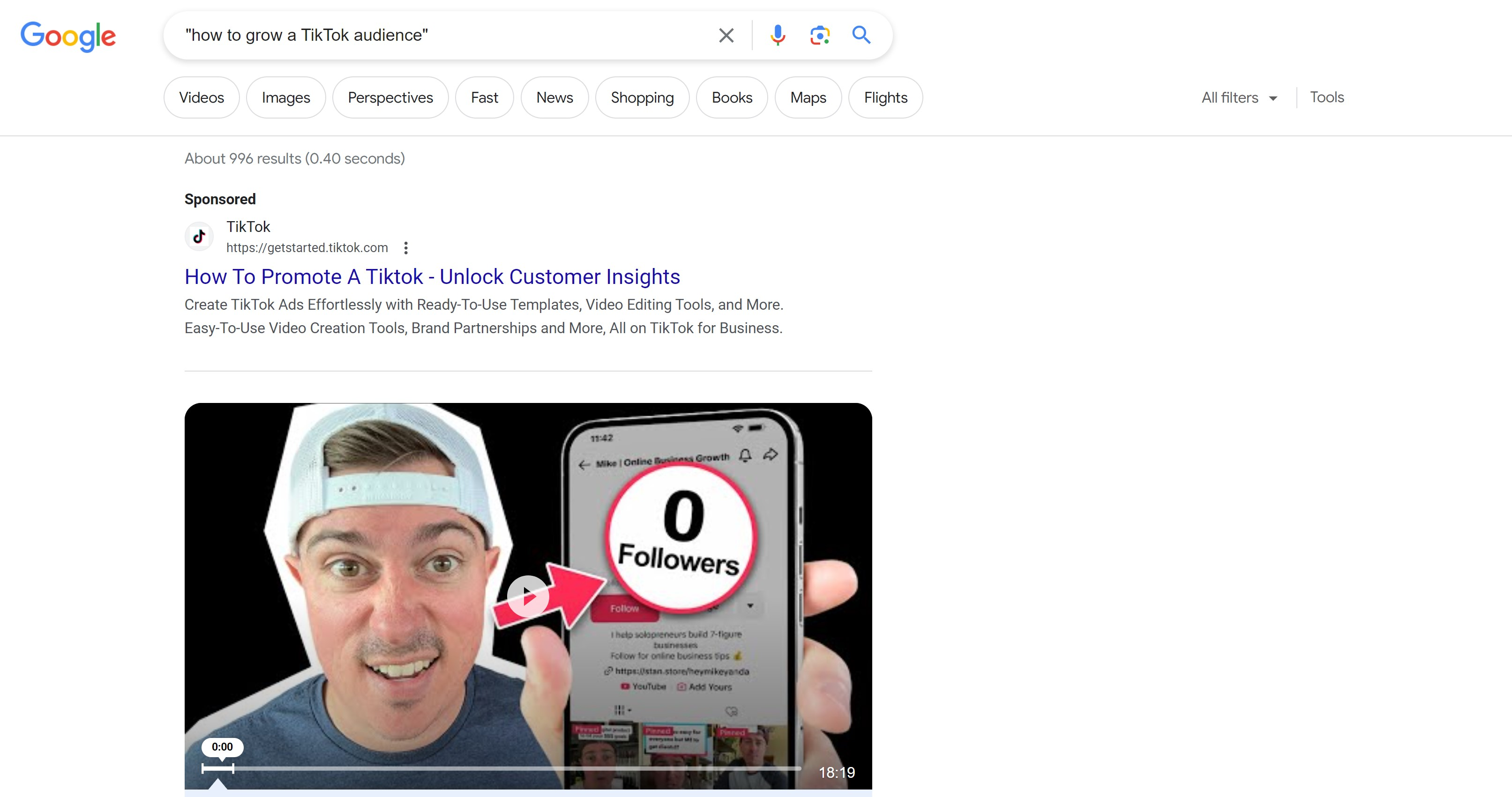
If you're looking for information on a narrow topic, putting it in quotation marks will give you results containing that exact phrase instead of individual words. This is helpful when searching a specific topic like Keyword research for SEO or specific product names like "Google Pixel Buds Pro."
Searching Google without using quotes will pull up every piece of content online that contains the words "keyword research" or "Google Pixel Buds Pro."
Some of these articles may be helpful to your specific needs, but an article titled "Keyword research for toothbrush companies" won't be relevant.
Using quotes for search has the potential to narrow down 99.99% of results
2. Search One Website Exclusively

Do you have a website you'd like to find super-specific content on? Use Google's "site:" operator to search all the content within that one site.
For example, searching "site:medium.com productivity" will pull up all articles about productivity from the Medium website.
However, remember that for bigger websites with many articles, using the "site:" operator may still end in a clouded search results page. You'll need to use longer keywords to refine your search terms for more accuracy.
3. Try Google Scholar for Academic Research

When diving into academic research, the sheer volume of information combined with unreliable sources makes the task seem overwhelming. Enter Google Scholar, a specialized corner of the internet tailored for scholarly literature.
Google Scholar works by crawling various academic sources like:
- Scholarly publishers
- Professional societies
- Online repositories
- Universities
A handy consideration while using Google Scholar is to take advantage of its "cited by" feature. This allows you to see which other papers have referenced the work you're interested in. You'll be led to more material specifically connected to your search inquiry.
4. Convert Currencies and Units
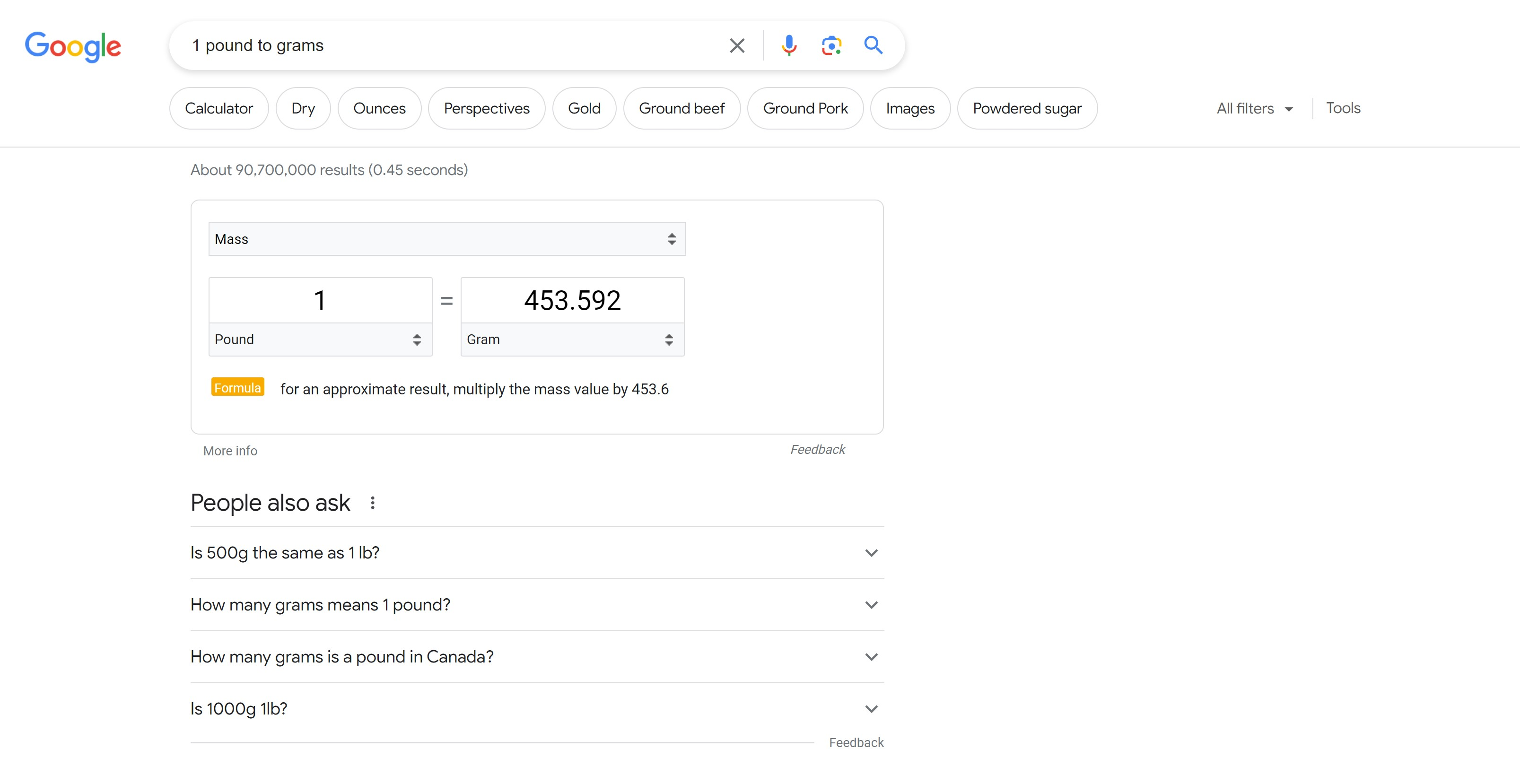
Say goodbye to the mental gymnastics of converting currencies and units and say hello to instant clarity. Google easily converts your measurements when you type in what you need.
If you're in the U.S. and want to know how many grams are in a pound, type "1 pound in grams" and let Google do the heavy lifting. You'll get an instant answer with the exact conversion.
Here's a list of conversion examples to use:
- Inches to centimeters
- Fahrenheit to Celsius
- Kilometers to miles
- Ounces to grams
The features are perfect for articles written for multiple countries or e-commerce owners who need to convert currency for accurate bookkeeping.
5. Use Google Visual Search

Thanks to Google Visual Search, you can give Google any image and find relevant search results page. This method works when you Google search an image on iPhone, Android, or PC.
Take a photo and upload the image to Google. The tech will separate the elements within the image using reverse image search algorithms to identify objects, texts, and even landmarks.
When taking a photo, ensure the environment is well-lit and the image is clear. The better the quality of the photo, the easier it is for Google's AI to decipher what it's looking at.
Google Search Tips For Market Research
Whether starting a business or conducting competitor research for an existing one, the following Google search engine tips will help you get the data you need to make better business decisions.
6. Find Mentions of Your Site
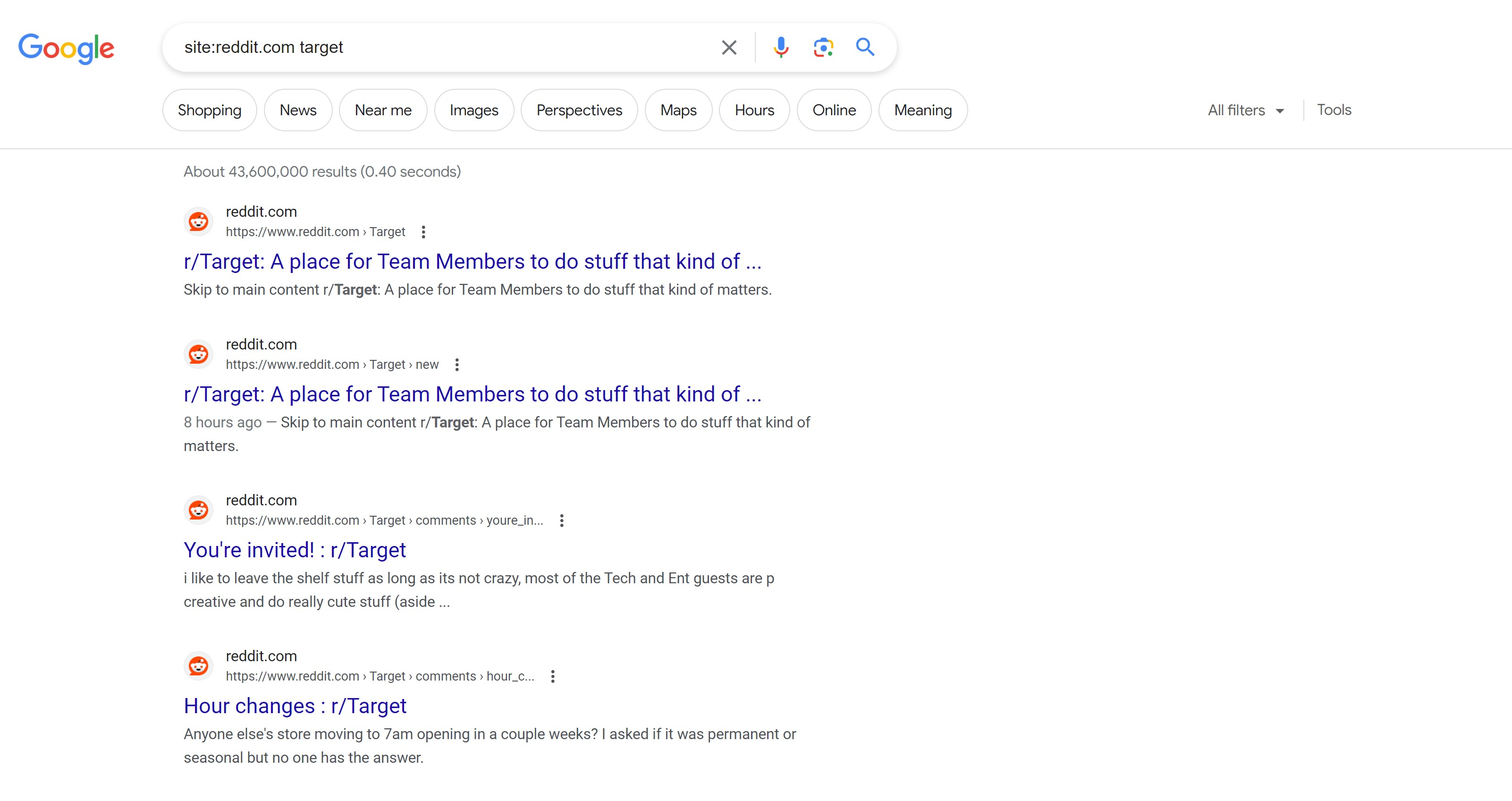
Combine the Google operator for searching one website exclusively with popular forums like Quora and Reddit to see mentions of your site online. These platforms have a strong user base and are visited frequently by consumers seeking information about different products or services.
Here are a few places around the web to use this method:
- Quora
- Product forums
- Niche specific blogs
- Google Answers
- Stack
By typing in "site:reddit.com" followed by your brand's name, you can see all the mentions of your site on Reddit. Using this info, you can see how customers see your brand, how they use your products and any hidden pain points.
7. Find Published Competition
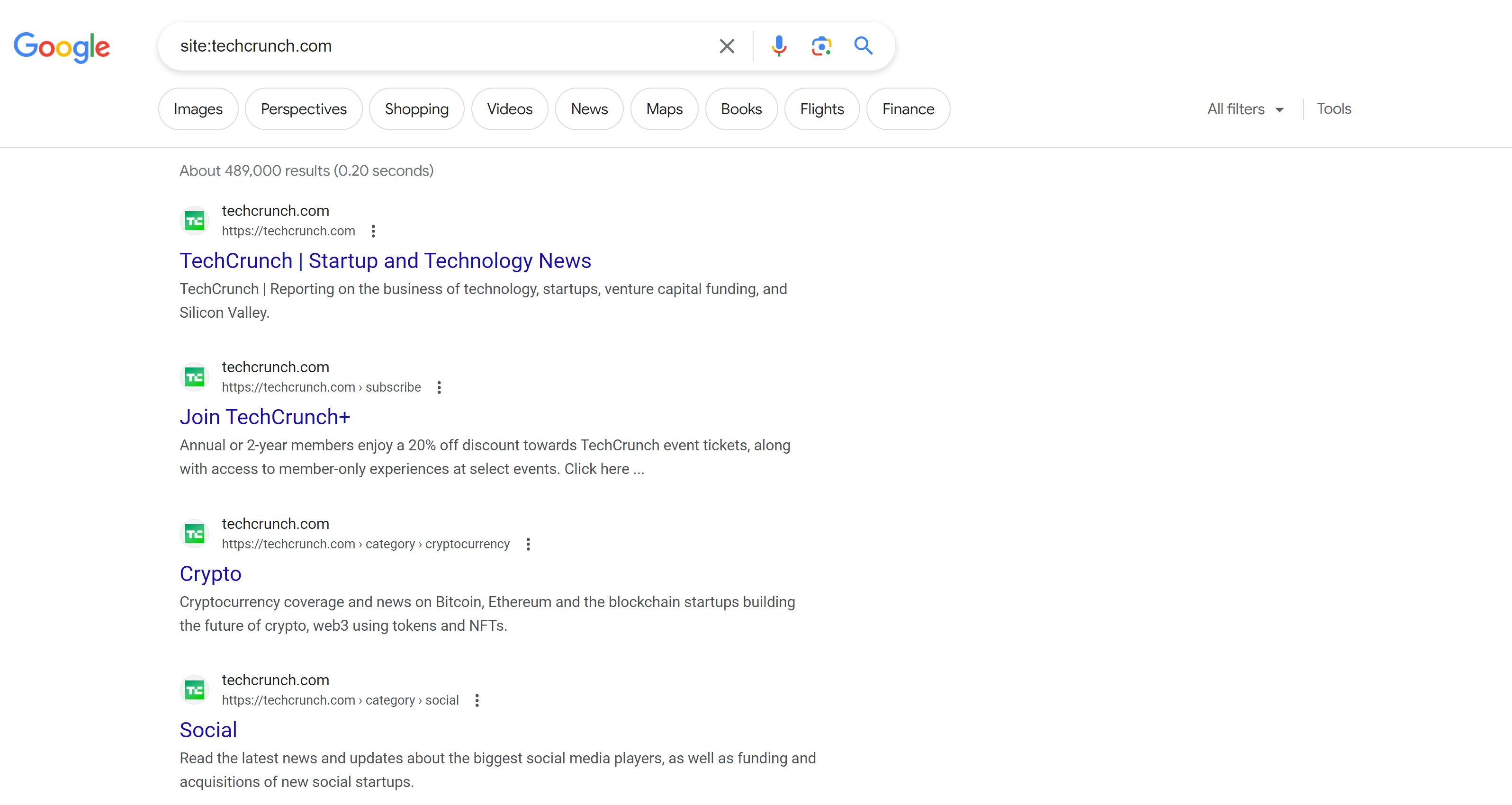
You need to know the level of competition in your niche when starting a blog. Knowing how much content you need to produce will help you strategize how to beat your competitors.
An easy solution is to use the "site:" operator in Google. Unlike the second tip in this article, you won't include additional keywords.
Here's an example:
- site:techcrunch.com
Directly above the search results will be a number that shows how many pages, or pieces of content, your competitor has roughly published and indexed in Google.
8. Find Sites That Competitors Are Mentioned On

This method is an excellent starting point when running backlink campaigns and finding sites in your niche willing to link to you.
You'll be combining several operators to get a specific search results page that can create backlink opportunities. Here's how it will look when you type it in:
- online image editor "canva" -yourbrand -site:canva.com
The structure breaks down like this: keyword > competitor name in quotes > no mention of your brand's name > no mention of competitor website
9. Pull Statistics from Reputable Sites

According to Wordpress.com, the platform publishes around 70M monthly posts from all its users. Credible sources are becoming harder to find.
When you do find news sites or academic organizations you can trust, here is a search engine operator to help you stay within those sources:
- Your keyword (cnn.com OR nsf.gov OR who.int)
Google will only display a search results page with solutions within the sites you include in your brackets.
10. Research Longtail Keywords

Closing your longtail search term between quotes will help you get specific results that relate to the entire phrase rather than the individual words. But you can add more than one longtail if you search for similar topics.
For example, let's say you want to search for information about productivity and tools that can help; type in the Google search bar:
- "productivity tools" OR "tips for productivity"
You'll get results where both of these phrases are mentioned. The OR operator in the middle clarifies that you need results for both phrases for Google.
Google Search Tips For Outreach
You don't have time to wait for opportunities and success to come to you. You have to put yourself out there and pull it towards you. These Google search engine tips will help you find the right people to connect with to get noticed in your industry.
11. Find Guest and Sponsored Post Opportunities

Use the search term of your niche and then combine it with the phrases "write for us" or "guest post" to find blogs with guest posting opportunities for you to use.
The phrasing will look similar to this structure:
- SaaS startup "write for us"
- Automation "guest post"
You'll see many site pages explaining what it takes to write for each publication. Pay careful attention to the restrictions and guidelines. Not following these rules could be a cause for rejection.
12. Look for Backlink Opportunities
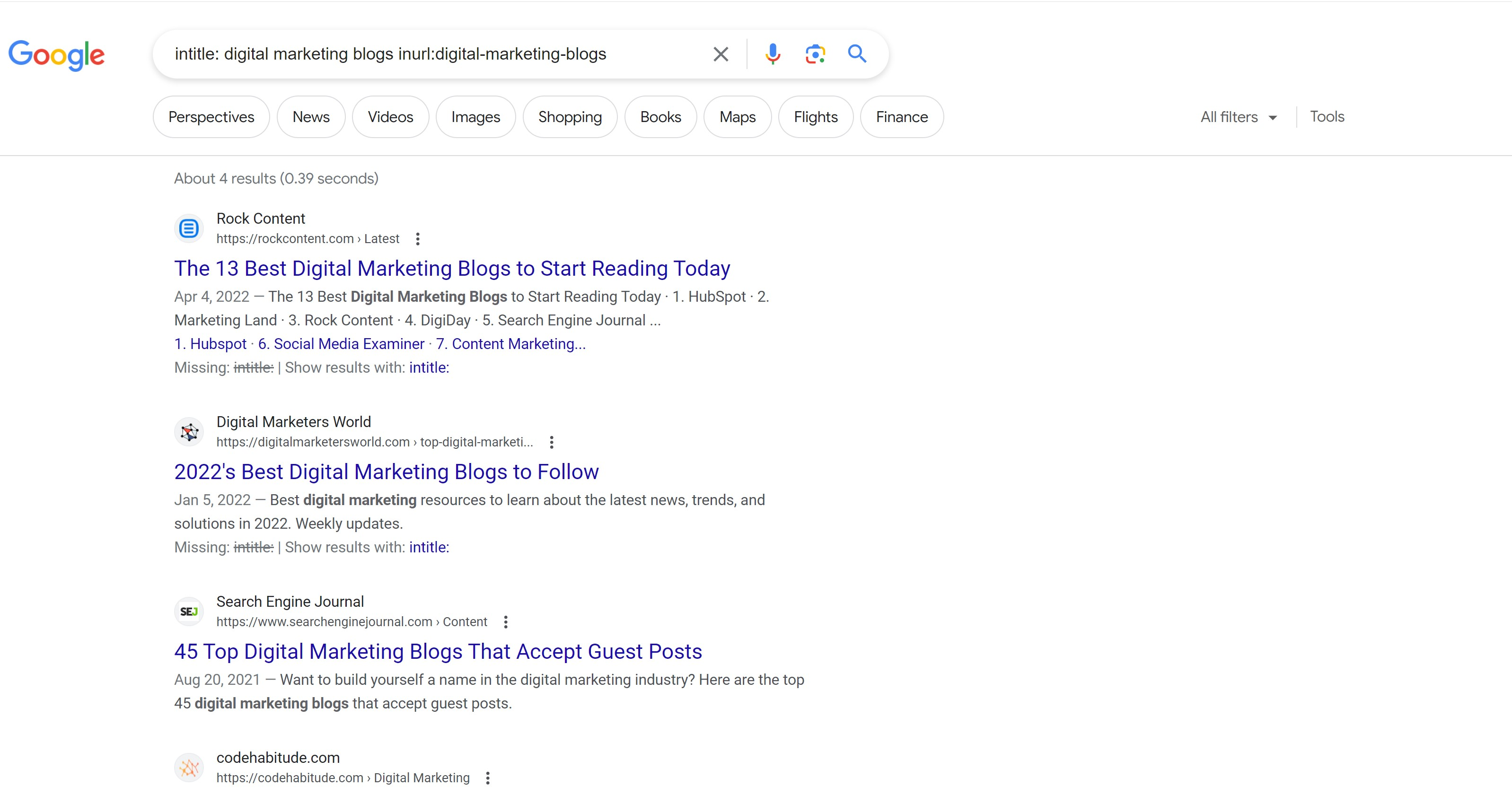
Backlinks are still a large factor when ranking sites in Google and other web search engines. As more sites enter the digital space, the competition becomes stiffer.
By combining the intitle: operator with the inurl: you can get a free look into possible opportunities for site backlinks. Here's what it should look like:
- intitle: digital marketing blogs inurl:digital-marketing-blogs
Google will pull up all the web pages with your search term in their title and ensure that the webpage's URL has your phrase.
13. Find Contact Information
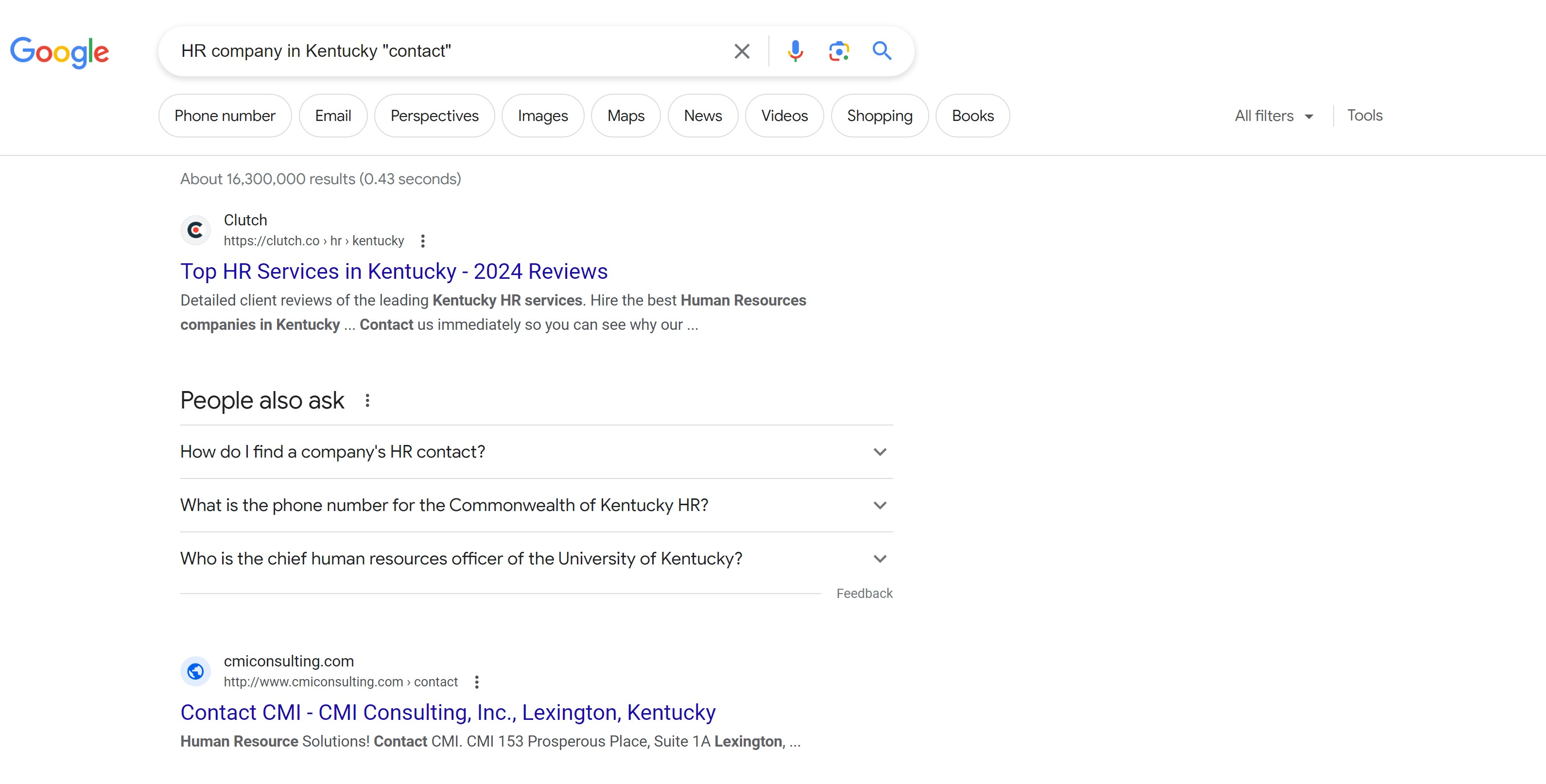
Like the guest post method, you can find contact information quickly by typing in the name of your niche and then "contact."
The more keywords you include, the more specific your results. Here's an example to use:
- HR service in Kentucky "contact"
You'll see a list of services for HR in the state of Kentucky when using this prompt. If your search gets too narrow, broaden your keyword and start over.
14. Use Local Search
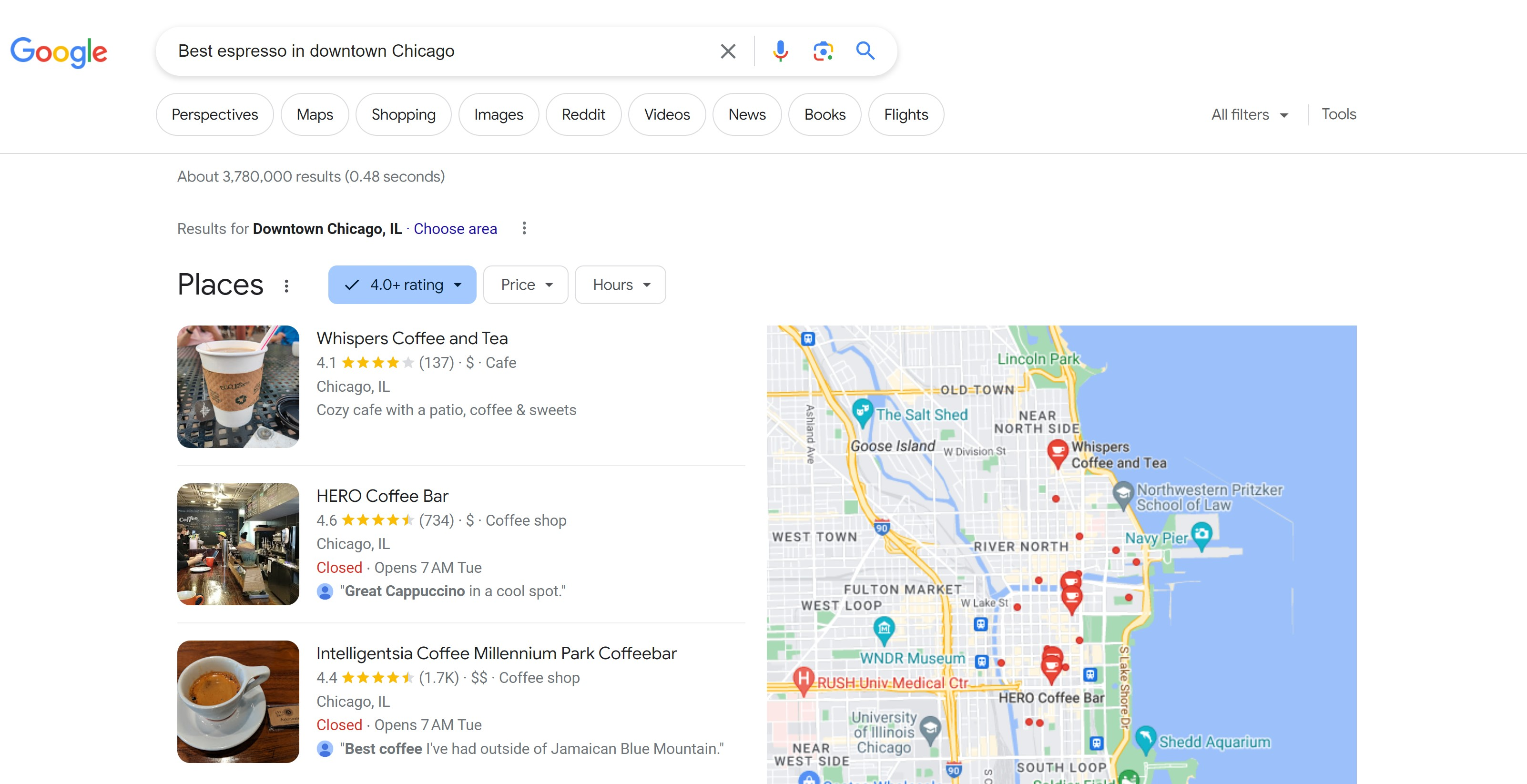
Google does a phenomenal job at surfacing local results for your searches. It works by combining your search keywords with location-based filters, but a technical side works in the background.
This process involves Google accessing the explicit location information you provide in your search query or using data from your device's IP address or GPS if location services are enabled.
Here's an example of how it looks:
- Best espresso in downtown Chicago
Make sure your location services are enabled for more accurate results.
15. Set Up Alerts
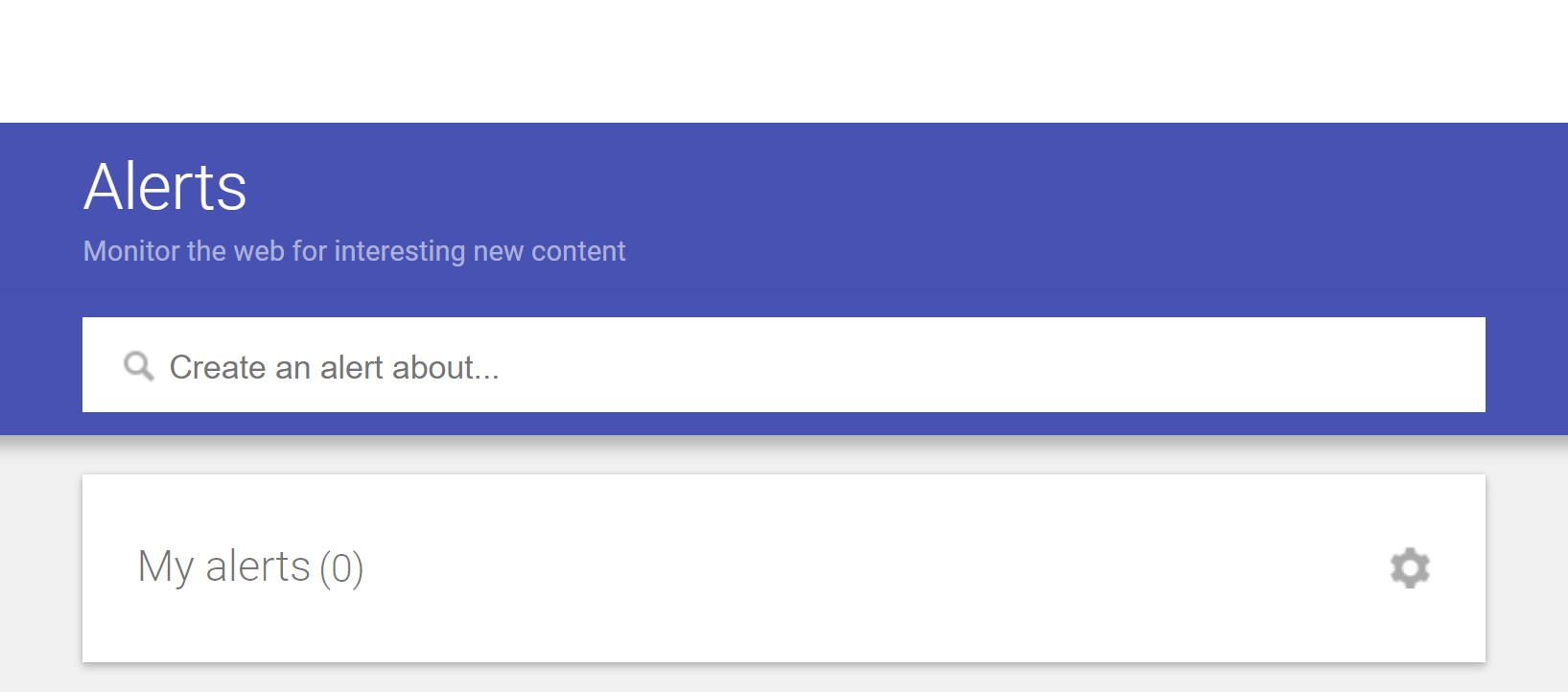
In 2023, Google released new functionality that allowed you to set up email alerts anytime a new result matched your query.
Just type in the keyword or phrase you want to monitor and then answer a few parameter questions that keep your results relevant, and you'll receive an email every time a new result comes up.
The Google Alerts feature is perfect for monitoring specific niches without spending hours daily doing it manually.
Tools That Take Google's Data to The Next Level
You'll love these helpful tools below if you want to grow your site's appearance on Google.
1. Keysearch
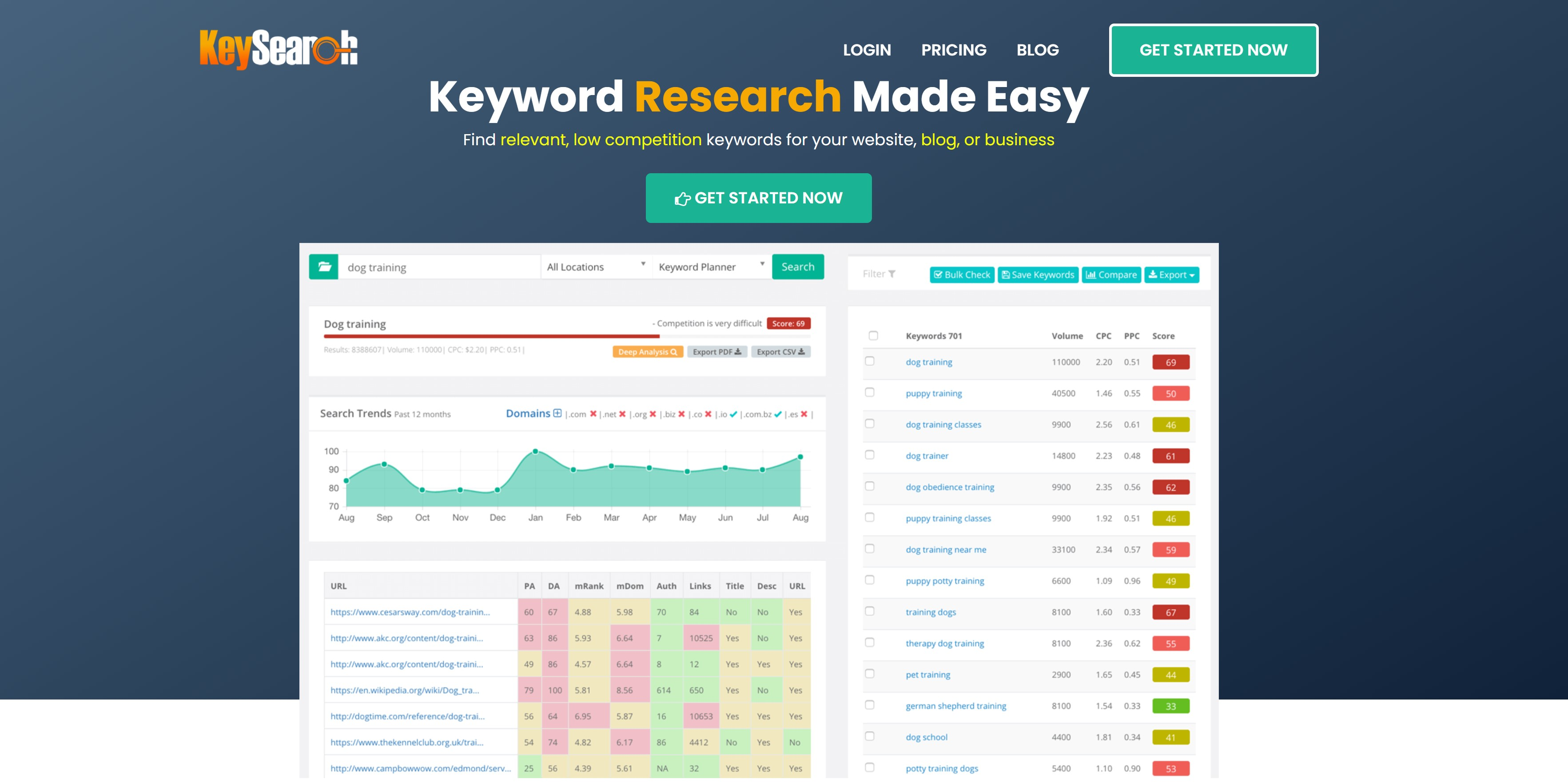
As one of the more affordable keyword tools on the market, Keysearch is worth a try for any level entrepreneur.
It's more affordable than other services and includes thorough keyword and competitor research tools.
Here are a few of the features you can expect:
- Ability to export data
- User-friendly interface
- includes a content assistant
The only downside to using Keysearch is the lack of phone or live chat support; otherwise, it's a solid tool with deep analytical features.
Price: Free trial: $0 (One month), Starter: $17/mo, Pro: $34/mo
2. SEMRush

SEMRush is one of the largest SEO marketing tools on the market. The comprehensive tool has everything from content ideas to backlink analysis.
Here are some of the features you should expect:
- Large keyword research database
- Competitor SEO analysis
- Content optimization
The exhaustive features within SEMRush do come with a higher price tag compared with other tools that focus on a few SEO elements
Price: Pro Trial: Free 14-day pro trial, Pro: $129.95/mo, Guru: $249.95/mo, Business: $499.95/mo
3. Google Analytics & Search Console
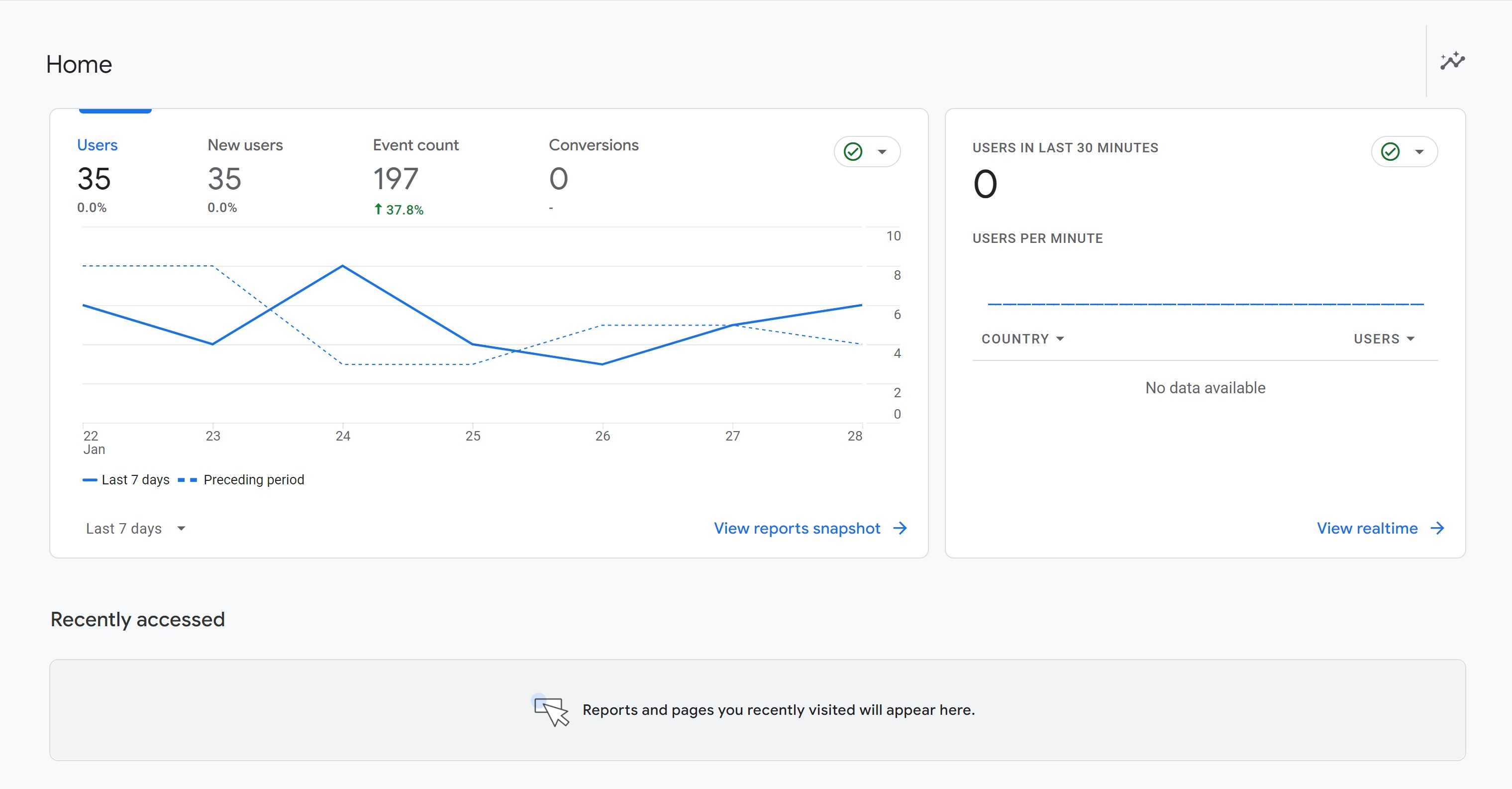
Google Analytics and Google Search Console are the go-to tools for SEO beginners.
Google Analytics tracks user data, which helps you better understand how much traffic your site receives and where it comes from. Google Search Console provides detailed reports on the performance of your website in Google search results.
The tools are built by Google itself, so the data given are the most reliable on the internet.
Here are some of the features you'll get with these free tools:
- Comprehensive visitor data like duration time, bounce rate, and landing pages
- Keyword performance reports
- Website error tracking
Price: Free to use
Final Thoughts on Google Search Tips
Harnessing these Google search tips can dramatically enhance your digital journey. Your business and personal endeavors benefit from learning these beginner and advanced techniques. Remember, the power of information isn't just about acquisition but how well you use and strategize that knowledge to achieve success.
Want to learn step-by-step how I built my Niche Site Empire up to a full-time income?
Yes! I Love to Learn
Learn How I Built My Niche Site Empire to a Full-time Income
- How to Pick the Right Keywords at the START, and avoid the losers
- How to Scale and Outsource 90% of the Work, Allowing Your Empire to GROW Without You
- How to Build a Site That Gets REAL TRAFFIC FROM GOOGLE (every. single. day.)
- Subscribe to the Niche Pursuits Newsletter delivered with value 3X per week
My top recommendations
















